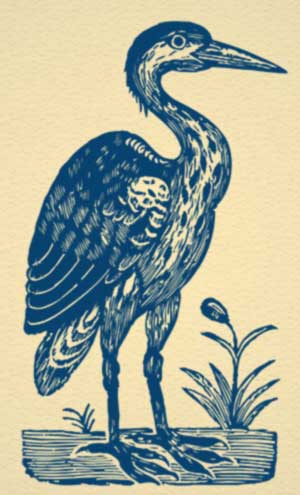Blue Heron mourns the death of a beloved colleague and friend, Tom Zajac, on August 31, 2015. The following is a lovely account of Tom’s life and work posted by his wife Lilli Nye.
Friends, below is a fairly comprehensive obituary and biography of Tom’s life. Many thanks to Ellen Hargis, Nancy Zajac Hamilton, Susan Kaufman, Grant Herreid and Christa Patton for helping to pull this together. Inevitably it is missing countless beautiful details and nuances–how can you summarize Tom Zajac’s life (or anyone’s)?—but hopefully it still gives a sense of the amazing scope of his work and adventures:
Thomas Edward Zajac, Jr., multi-instrumentalist and music educator, died on August 31, 2015, at a hospice near his home in Swampscott, MA, in the presence of his wife, Lillian Nye. He was 58 and had suffered for three years from brain tumors that eventually turned cancerous. A beloved member of the early music community, countless colleagues, friends and fans joined his family in rallying around him.
Tom Zajac was born Oct. 1, 1956, and grew up in Schiller Park, Illinois, a suburb of Chicago, in a blue-collar community of Polish and Italian Catholics. He grew up in a singing family in which popular music was central to daily life and celebration. His mother had a beautiful voice for standards, which she and Tom would sing in harmony. His father sang and was a talented whistler, a trait Tom inherited.
Beginning early in his youth (and using the S&H Green Stamps rewards program), Tom avidly collected classical records , educating himself about composers, styles, and music history. In high school, he began playing the trombone and oboe, and soon added percussion to his repertoire. He performed in his high school’s concert and jazz bands as well as in a competitive drum and bugle corps, the Imperials. In high school and early adulthood his listening expanded to include jazz, contemporary and experimental music, and world music. While music was central to Tom’s pursuits he also had a keen interest in science, was in the National Honor Society in high school and was considered a gifted student.
Tom received his Associates degree from Triton College in River Grove, Illinois, and played trombone in the professional rock-funk-jazz fusion band, Paragon. He went on to earn his bachelor’s degree in Music History at Northern Illinois University, continuing to play trombone and singing in several choirs. While at NIU, he was thrilled to become a part of the emerging World Music Program initiated by Professor Kuo-Huang Han, gaining his first experiences with Balinese Gamelan and the traditional instruments of China. Tom traveled with Han and classmates to Hong Kong and other countries to give performances, sparking the love of international travel that would characterize his 35-year career.
In his early twenties, Tom was exposed to the instruments and music of the Medieval and Renaissance periods. He was drawn immediately to the recorder, with which he rapidly developed proficiency, and shifted his focus from the trombone to its precursor, the sackbut. In 1982, he began studies at Sarah Lawrence College in New York where he earned a Master of Fine Arts in Early Music in 1984, studying recorder with Charles Coldwell. Over time, Tom became adept with a remarkable number and diversity of early instruments. Tom met soprano Johanna Rose in the historical performance program in 1982, and the two were married from 1989 until 1996.
Tom’s professional career began in earnest in New York City where he quickly made a name for himself as a freelance multi-instrumentalist praised for his versatility and stylish playing of medieval and Renaissance music. Early on, he performed with Nottingham Faire in the public schools through Young Audiences of NYC and Caramoor Center for Music and the Arts. He performed in and directed the Mannes Camerata under Paul Echols. With New York’s Ensemble for Early Music (now Early Music New York), Tom performed in Daniel and the Lions, Herod and the Innocents, and Roman de Fauvel, touring the US and internationally, and played in a six-month, off-Broadway run of Julie Taymor’s Taming of the Shrew in 1988. He became a member of the wind band Piffaro in 1989 and a co-founder of the New York-based theatrical/musical group Ex Umbris. Tom also appeared frequently with The Tallis Scholars, the Folger Consort, The King’s Noyse, The Newberry Consort, The Waverly Consort, Hesperus, The Rose Ensemble, The Texas Early Music Project, The Boston Camerata, and other leading US ensembles.
Tom moved to Philadelphia and, in 1997, met Lillian Nye, a Unitarian Universalist minister and amateur musician. They married on Oct. 6, 2001. Tom and Lilli moved to Boston in 2002 and this became the home base from which Tom continued his freelance performance and teaching and directed the Collegium Musicum at Wellesley College from 2003 to 2015.
Tom’s versatility as a multi-instrumentalist afforded him unique opportunities. He performed 14th-century music in the East Room of the White House during the Clinton years, played serpent in a piece by PDQ Bach on an episode of A Prairie Home Companion, and a recording of his bagpipe awoke the astronauts every morning on a 2001 space shuttle mission. He performed on the soundtracks of several PBS documentaries for Emmy award-winning producer and composer Brian Keane as well as 18th-century music for the score of the Ric Burn’s “New York: A Documentary Film.” Tom played hurdy gurdy for the American Ballet Theater, bagpipe for an internationally broadcast Gatorade commercial, and shawm for the NYC Gay Men’s Chorus in his Carnegie Hall debut. Other projects included a 13th-century music-theater piece, the Tournoi de Chauvency, with the French-American company Ensemble Aziman with performances in France, Luxembourg and the US, and work as percussionist for Boston Early Music Festival opera productions, where he also played on-stage recorder in Lully’s opera Psyché.
Later in his career, Tom took up the santur, miskal and zurna, learning the beautiful repertory of Ottoman court music and performing with the Boston-based collective Dünya, with whom he traveled to Istanbul in 2010. Tom traveled widely over three decades, playing in virtually every country in Europe and Britain, as well as Hong Kong, Australia, Mexico, Bolivia, Colombia, Guam, Australia, Israel and Turkey.
Tom was a beloved teacher of amateurs, students, and professionals alike. He directed collegiums at Mannes College, University of Maryland and Wellesley College, inspiring new generations of musicians with his creative approach to early music. After attending the Amherst Early Music Summer Workshop as a student, he became one of their most popular teachers and was a fixture in the Festival every year. He taught regularly at Pinewoods, the Madison Early Music Festival, The Texas Toot and other workshops throughout the US. For several years he directed the Medieval and Renaissance week of the San Francisco Early Music Society workshops in California.
Tom had a passionate interest in the confluence of historical and socio-cultural approaches to music making. He was particularly curious about the cross-fertilizations that occurred when disparate cultures met and commingled giving rise to new musical expressions. In this vein, he researched and directed performance projects in Colonial Latin-American music, music of the three religious cultures of pre-expulsion Spain, and music in Eastern Europe from Poland to the Ottoman court of 16th to 19th-century Turkey.
Being of Polish descent, the music of his ancestors was particularly dear to Tom. In the mid-80’s, during a tour to Finland with the Ensemble for Early Music, the group was scheduled to go on to perform in a festival in Poland. Tom set out for Poland on his own, only to learn upon arrival that the performance had been cancelled and that he was stranded. The local community adopted him, inviting him to perform a solo concert and to play with local musicians, raising enough money to get him back to the US. Tom returned to the same festival in 1988, culminating in his participation in a Solidarity mass in Nowa Huta. In August 2011, he was invited by the Polish government to take part in a research visit to hear and meet Polish early music ensembles. These exchanges and his own research led to his amassing a unique collection of early Polish and Eastern European music, the riches of which were only beginning to be experienced within the US early music community at the time of his illness and death.
Tom was a true audiophile, collecting over 1500 CDs. He meticulously read the liner notes of each new acquisition, absorbing the ethnomusicological insights they provided. The collection reflects his insatiable curiosity about the musical history, diversity, and topography of the world. Tom held a special appreciation for obscure cultures whose linguistic and musical lineages were threatened with extinction and was greatly inspired by new generations of musicians who revived and carried forward traditions that would have otherwise faded into oblivion. In addition to his personal explorations of music, he had a passion for animated film, collecting hundreds of animated shorts across the historical, cultural and technical spectrum, which he loved to show to his friends.
Tom participated in over forty recording projects ranging from medieval dances to 21st-century chamber music. Together with the countless editions of music he produced, his research notes and archives of original sources, and his extensive library of books and recorded music, Tom bequeaths to his community a rich legacy of his musical and creative life.
Tom was preceded in death by his parents Thomas Edward Zajac, Sr. (d.1988) and Fern Zajac (d. 1981), and his sister Laura Zajac (d. 1970). He is survived by his wife, Lillian Nye of Swampscott, MA, his siblings Georgette Zajac Buresh (brother-in-law Larry, and nephews Matt and Scott), Ellen Zajac Vecchiolla (husband Tony, and niece Laura), and Nancy Zajac Hamilton (brother in law Jim, niece Martha, and nephews Danny and Tommy).
Although a person of immense talent and extraordinary professional accomplishment, Tom was known as a friend to all. His unassuming warmth, humor and generosity of spirit were a delight to all who knew him. With his family, hundreds of friends, students, fans, and colleagues mourn his passing.


